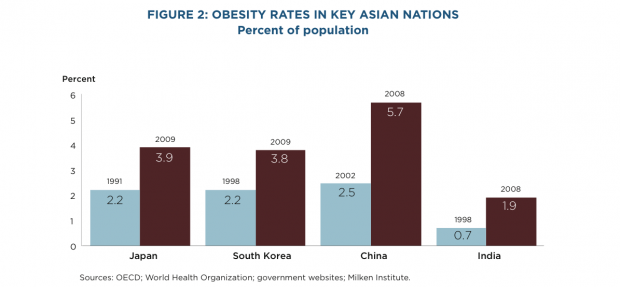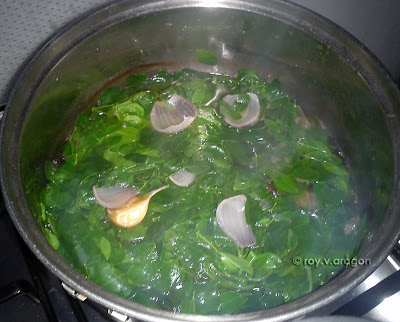(from Tech Crunch)
by GREGORY FERENSTEIN
The world has paid for the luxury of Angry Birds with its health and looks: a new report finds a strong link between technological advancement and expanding waistlines. According to economic think tank, The Milken Institute, a country the size of America will add 4.2 million Spanx-wearing citizens for a 10% growth in Information and Communication Technology (ICT). “The main culprit is the knowledge-based society,” states the report, “more processed foods, a greater amount of ‘screen’ time (watching TV, using computers, playing video games, etc.), decreased energy expenditure, and/or higher consumption of snack foods have all played a role.”
Around the world, obesity rates have shot up higher than the population’s blood sugar. China’s has more than doubled (2.5 to 5.7) in 6 years; India’s has almost tripled (0.7 in 1998 to 1.9 in 2008). But, that doesn’t hold a bacon-flavored candle to American exceptionalism: the U.S. is the Burger King of global obesity at a whopping 33.8% of the population.
Avoid obesity, eat more vegetables the Ilokano way!
by GREGORY FERENSTEIN
 |
| Dinengdeng nga uggot ken sabong ti kabatiti, uggot ti paria, nalaokan iti narnar (nagasagas a tukmem). |
Around the world, obesity rates have shot up higher than the population’s blood sugar. China’s has more than doubled (2.5 to 5.7) in 6 years; India’s has almost tripled (0.7 in 1998 to 1.9 in 2008). But, that doesn’t hold a bacon-flavored candle to American exceptionalism: the U.S. is the Burger King of global obesity at a whopping 33.8% of the population.
The economic and human toll is astronomical. 2.8 million adults die each year from Obesity and weight-related diseases. It accounted for $147 billion in medical costs (or 10% of total spending).
The impact of technological advancement, however, is an average effect. The slender French are only mildly affected by iPhones and Xbox’s because they eat much smaller portions (even though they eat a higher proportion of fats).
Over the past 15 years, consumption has been supersized by 150-250 calories a day, and 300 calories in the U.S. Calorie consumption was dramatically more predictive of obesity than information technology investment. Controlling for calories, exercise, and type of consumption (booze, fat, veggies), Milken estimates about a 1.4 percent increase in obesity for every 10 percent increase in the share of the economy invested in ICT.
Exercise as simple as walking can make a big difference in reducing obesity. But, why stop there? Be ambitious. Go for a six-pack and have your whole business join a CrossFit gym. Or, you can just always order the growing line of mainstream Spanx-wear from the comfort of your well-worn chair.
***
Avoid obesity, eat more vegetables the Ilokano way!
 |
| Dinengdeng a saluyot, uggot ken sabong ti kabatiti, nalaokan iti narnar ken gamet. |
 |
| Ensalada nga uggot ti kamote. |
 |
| Kinilaw a pako. |
























